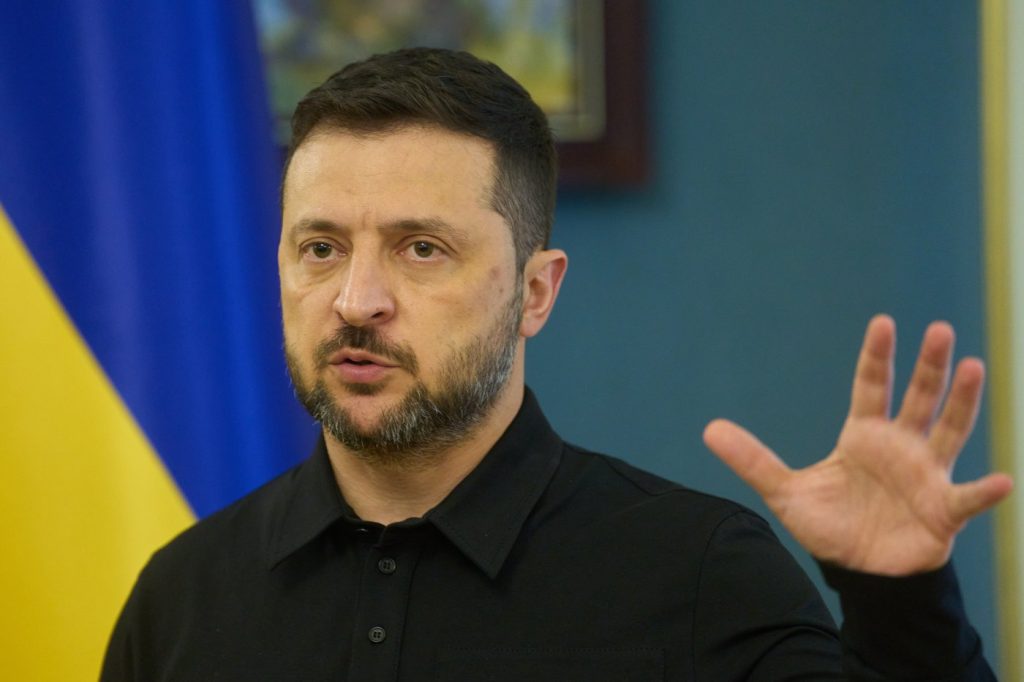KYIV, Ukraine (AP) — The Zaporizhzhia nuclear power plant, located in the Russian-occupied territory of Ukraine, has been running on emergency diesel generators for five consecutive days, raising significant safety concerns regarding the facility. The situation has escalated as external power to Europe's largest nuclear plant has been cut since Tuesday, marking the longest outage in its operational history during the ongoing conflict. Greenpeace Ukraine reported that the plant is in “blackout mode,” emphasizing the risks associated with having no external electricity to power essential cooling systems and safety mechanisms.
Ukrainian President Volodymyr Zelenskyy has also made headlines this weekend by announcing a substantial $90 billion arms deal with the United States, criticizing Hungary for its “dangerous” intelligence drone activities over Ukrainian territory. This package marks a major step in military support for Ukraine amidst ongoing hostilities with Russia.
The International Atomic Energy Agency (IAEA) has expressed deep concerns about the cooling systems of the Zaporizhzhia plant, as failure to maintain proper temperatures could result in catastrophic meltdowns akin to those experienced during the Fukushima disaster in Japan in 2011. The consequences of a radiation catastrophe similar to Chernobyl, which occurred in 1986, are ever-present, as underscored by the warnings from nuclear watchdogs. Svitlana Hrynchuk, the Ukrainian Minister of Energy, confirmed the blackout status and attributed the power loss to Russian shelling, which damaged the remaining power transmission line connecting the plant to the Ukrainian grid.
The Russian-controlled communication channels announced that there are sufficient reserves of diesel fuel available at the site to continue operating the generators autonomously for an extended duration. However, experts like Jan Vande Putte from Greenpeace Ukraine highlight that these diesel generators are only intended for use in critical situations, making the current reliance on them particularly alarming. Vande Putte pointed out that the situation represents some of the most severe risks faced by the plant since the onset of the Russian occupation in March 2022.
Recent satellite imagery has indicated that Russia may be considering restarting at least one of the reactors, despite the hazardous conditions created by the ongoing war. Reports suggest that Russian engineers are working on extensive power lines to link the nuclear facility to their energy grid, while past actions have indicated deliberate attempts to sabotage the Ukrainian power connections. The IAEA continues to monitor the facility and rotate personnel for safety assessments.
In light of escalating tensions, Zelenskyy detailed the $90 billion arms agreement, describing it as a “mega deal” that includes payments for both major arms and a drone deal intended to bolster Ukraine's defense capabilities. He emphasized that discussions surrounding the military specifications Ukraine requires from the U.S. included requests for long-range weapon systems. Additionally, Zelenskyy accused Hungary of conducting reconnaissance missions over Ukraine, calling these actions reckless. Hungarian Foreign Minister Peter Szijjártó dismissed Zelenskyy's claims, asserting that the Ukrainian president was exaggerating the situation.
Moreover, Zelenskyy noted that an Israeli Patriot air defense system has been operational in Ukraine for nearly a month, with two additional such systems slated for delivery in the fall. While details of the air defense deployments were limited, this development signifies continued international support for Ukraine against Russian aggression in the region.
As the conflict continues, the situation at the Zaporizhzhia nuclear facility remains a critical point of concern for international observers and authorities, warranting close monitoring and prompt action to avert a potential catastrophe that could have devastating effects beyond Ukraine’s borders.











